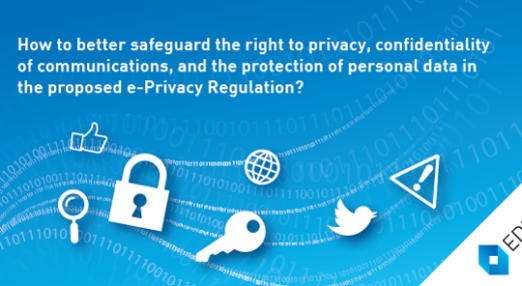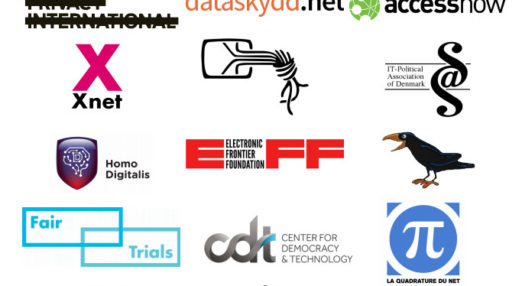Privacy and data protection
Filter resources
-

Digital rights as a security objective: Abuses and loss of trust
Violations of human rights online can pose a real threat to our societies, from election’s security to societal polarisation. In this series of blogposts, we explain how and why digital rights must be treated as a security objective. In this third and final blogpost, we discuss how digital rights violations can exacerbate breaches to the […]
Read more
-

Advocate General issues two Opinions on “right to be forgotten”
On 10 January 2019, the Advocate General (AG) Maciej Szpunar delivered two Opinions to the Court of Justice of the European Union (CJEU) that could have far-reaching implications for the “right to be forgotten”, which aims at enabling individuals to lead an autonomous life without stigmatisation from their past actions.
Read more
-

EU Member States willing to retain illegal data retention
With its judgments in April 2014 (Digital Rights Ireland ) and December 2016 (Tele2 ), the Court of Justice of the European Union (CJEU) ruled that blanket data retention was illegal under EU law. Rather than repealing their illegal data retention laws, EU Member States have instead adopted a tactic of ignoring the highest court […]
Read more
-

2019: Important consultations for your Digital Rights!
Public consultations are an opportunity to influence future legislation at an early stage, in the European Union and beyond. They are your opportunity to help shaping a brighter future for digital rights, such as your right to a private life, data protection, or your freedom of opinion and expression.
Read more
-

Bits of Freedom announces winner of privacy award
The Dutch Big Brother Awards will take place on 22 January 2019 in Amsterdam, the Netherlands. This year’s distinguished winner of the Felipe Rodriguez Award is Kirsten Fiedler, Managing Director of European Digital Rights. With this award, a Dutch digital rights organisation, EDRi member Bits of Freedom recognises people and organisations who have made a remarkable […]
Read more
-

EDRi Awards 2018
For the first time and with great solemnity, EDRi presents the first ever 5th edition of our annual awards.
Read more
-

Digital rights as a security objective: New gateways for attacks
Violations of human rights online, most notably the right to data protection, can pose a real threat to electoral security and societal polarisation.
Read more
-

EU Council’s general approach on “e-evidence”: From bad to worse
On 7 December 2018, the Justice and Home Affairs Council (JHA) adopted its general approach – a political agreement before entering into negotiations with the European Parliament – on the proposal for a Regulation on European Production and Preservation Orders in criminal matters. The initial proposals of the European Commission already raised concerns in terms […]
Read more
-

Denmark prepares for passenger data exchange with the EU
In 2016, the European Union adopted the Passenger Name Record (PNR) Directive which obliges Member States to collect PNR data on all flights to third countries and exchange this information with other Member States through the Passenger Information Units (PIUs).
Read more
-

Civil society calls Council to adopt ePrivacy now
EDRi has joined a letter of 30 representatives from civil society and online industry, to the Ministers in the Telecoms Council, to express the wide support for the ePrivacy Regulation. The letter describes the clear and urgent need to strengthen privacy and security of electronic communications in the online environment, especially in the wake of […]
Read more
-

Growing concerns on “e-evidence”: Council publishes its draft general approach
On 30 November 2018, the Council of the European Union published a draft text for its general approach on the proposal for a regulation on European Production and Preservation Orders in criminal matters – also known as “e-evidence”. The text is to be adopted by EU Member States, represented in the Council.
Read more
-

Complaints: Google infringes GDPR’s informed consent principle
On 27 November 2018, seven members of the European Consumer Organisation (BEUC) have launched complaints with their national Data Protection Authorities (DPAs) about Google potentially infringing the General Data Protection Regulation (GDPR).
Read more
